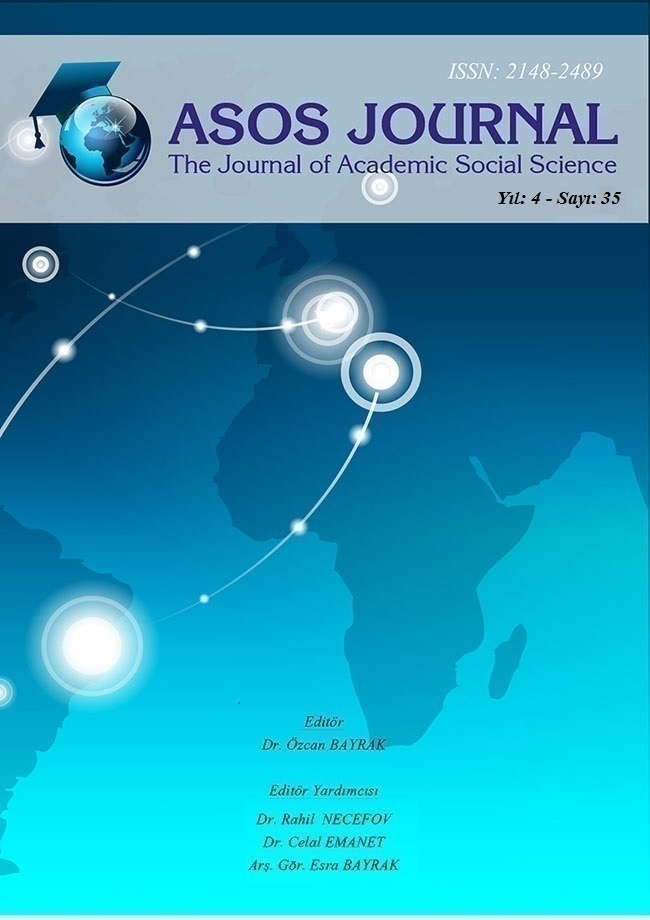Author :
Abstract
Bu çalışmada lise öğrencilerinde akran zorbalığının (AZ) beslenme durumu ve öfke kontrol tarzları arasındaki ilişkinin incelenmesi amaçlanmıştır. Farklı özellikteki 4 liseye (Kız Meslek; İmam Hatip; Anadolu; Erkek Meslek liseleri) devam eden toplam 210 öğrenci (yaş; 15,95 ±0,702 yıl) çalışmaya alınmıştır. Demografik verileri ve beslenme alışkanlıklarına ilişkin bir anket formu ile birlikte akran zorbalığı belirleme ölçeği ve sürekli öfke-öfke tarz ölçeği uygulanmıştır. Öğrencilerin öfke toplam puanı ile AZ toplam puanı arasında aynı yönde önemli bir ilişki saptanmıştır. AZ ile öfke toplam ve alt ölçek puanları yönünden erkekler, kızlardan anlamlı olarak daha yüksek puanlara sahiptirler. Her gün kırmızı et tüketenler ile her gün meşrubat tüketenlerin AZ ve öfke toplam puanları, hiç tüketmeyen ya da nadiren tüketenlerden anlamlı olarak daha yüksektir. Cinsiyet faktörü ve eğitim türünün öfke ve AZ toplam puanında önemli bir etken olduğu, AZ erkek öğrenciler arasında daha yaygın olduğu gözlenmiştir.
Keywords
Abstract
This study aimed to investigate the relationship of peer bullying (PB) with dietary habits and anger management styles in students studying at the high schools. A total of 210 students (15.95±0.702 years) were included in the study attending high schools with different features (School for Girls, Religious School, Anatolian School and School for Boys). Their demographic data and dietary habits were collected with a questionnaire along with the Peer Bullying Scale and the Permanent Anger Expression Style Scale. There was a significant positive correlation between total anger scores and total PB scores. Total and subscale scores of PB and anger of boys were higher than those of girls. Total bullying and anger scores of students consuming red meat and soft drinks every day were significantly higher than those who never or rarely eat. Gender, education type and dietary habits have influence on PB and anger scores of high school students.





